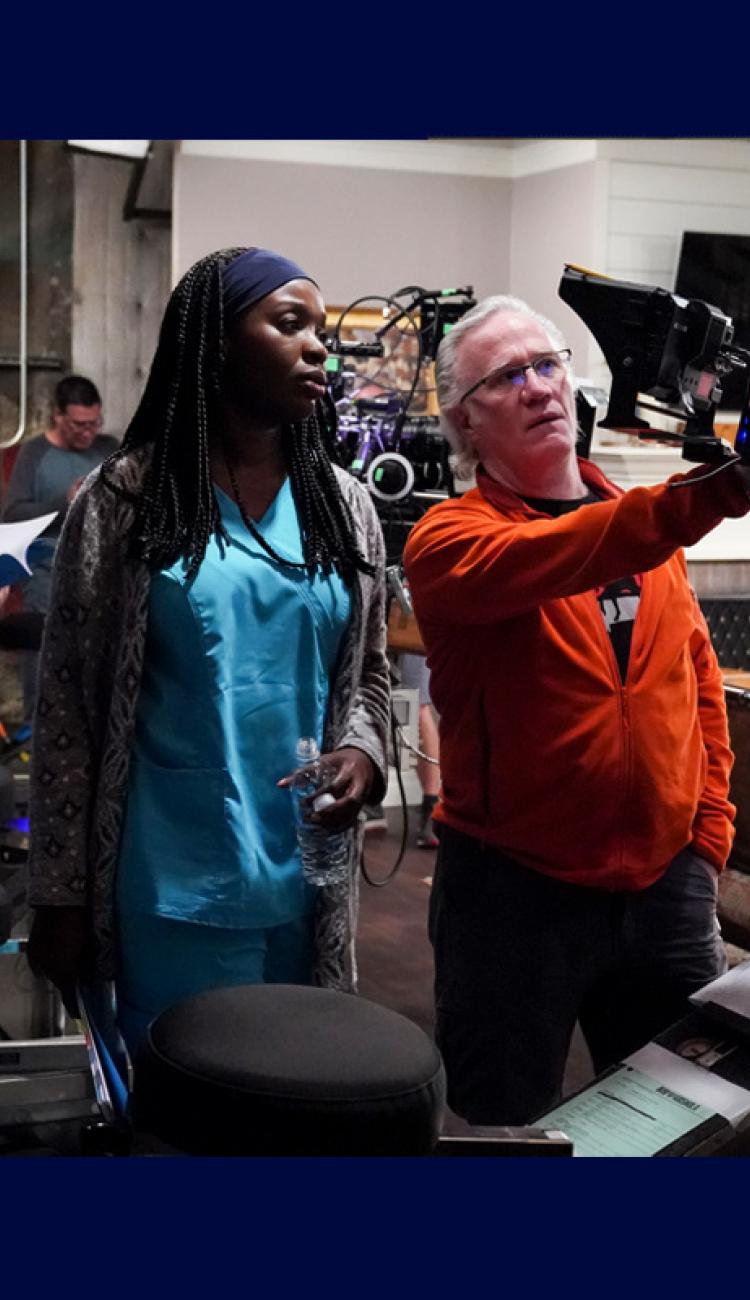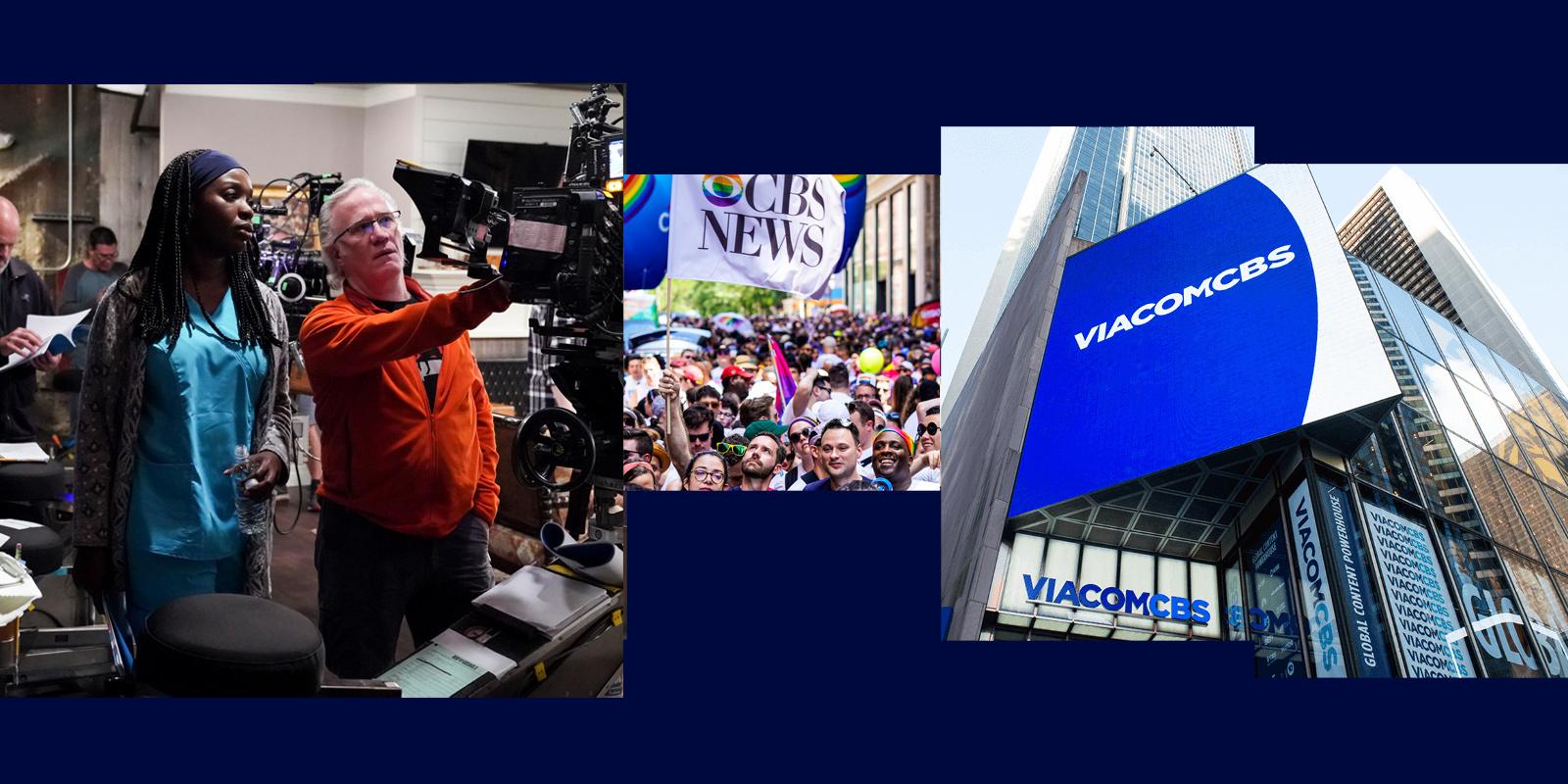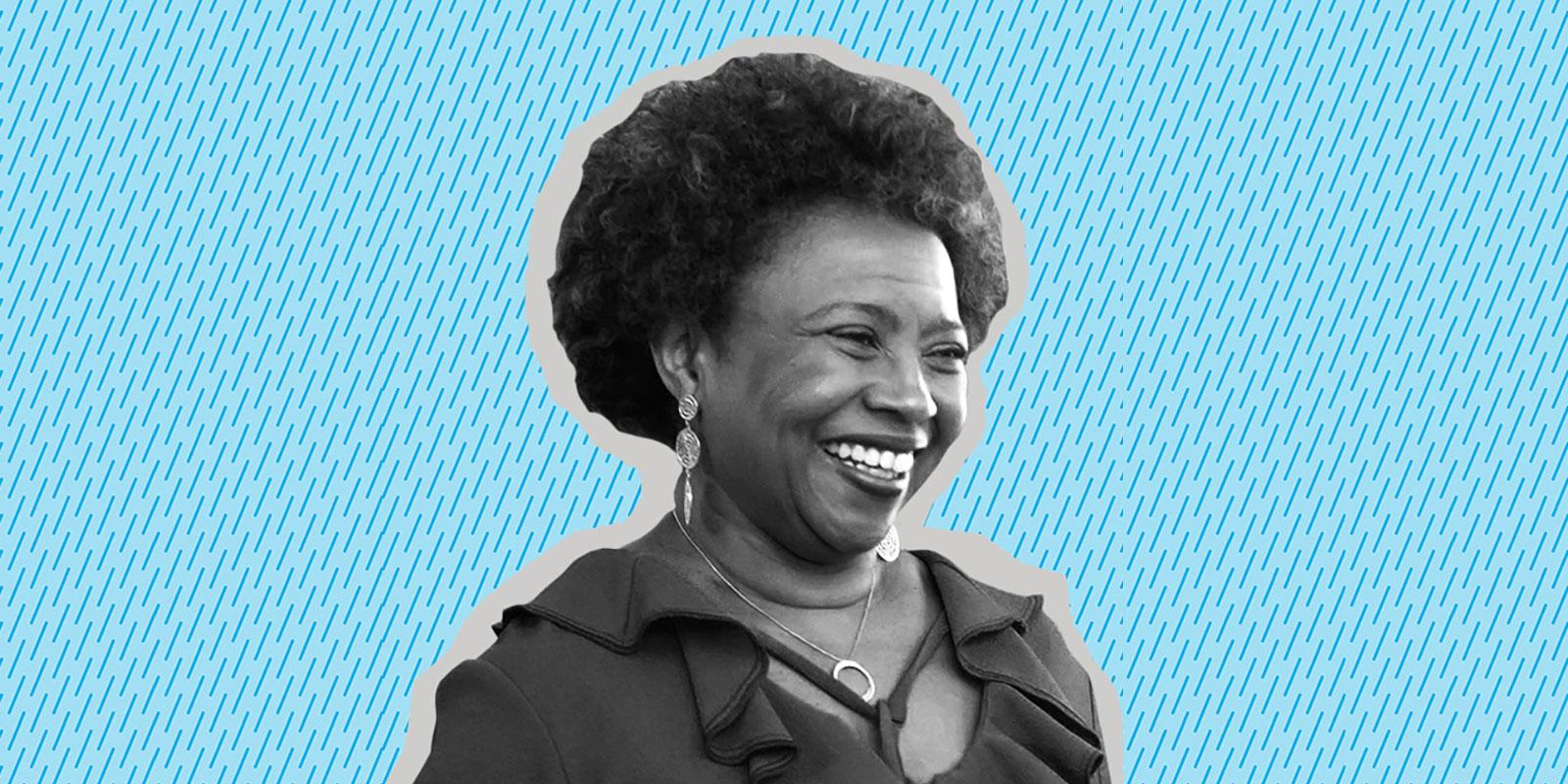Dec 02, 2020
Released nearly a year after the merger of Viacom and CBS, the report highlights the company’s three core areas of focus.
ViacomCBS’ first Environmental, Social and Governance (ESG) Report, released Wednesday, is as much a reflection of its progress as it is a document of its ambition.
The report (titled Action: ESG at ViacomCBS) outlines our company’s three ESG priorities, which organize all our business impacts across ViacomCBS: On-Screen Content and Social Impact, Workforce and Culture, and Sustainable Production and Operations. It also represents our commitment to transparency as ViacomCBS continues to develop its ESG strategy.
“We’re creating a baseline for ourselves,” says Jessica Thurston, director of ESG strategy and reporting at ViacomCBS. “The report itself is very much a moment in time and a means to an end to communicate our ESG priorities and document our most material data annually. But, most importantly, it holds us accountable to our own priorities and serves as a guide for how we can improve and innovate in the journey ahead.”
Thurston, who oversaw the development of the report from preparation to execution, says a clear picture of ViacomCBS’ impact across business lines was critical following the merger of Viacom and CBS in December 2019. The company plans to give an update on its sustainability and ESG efforts in its next report, slated to be released in mid-2021.
“Our inaugural ESG report is the first of many steps we’re taking to embed ESG and sustainability into our business,” says Crystal Barnes, SVP of corporate social responsibility and ESG at ViacomCBS. “We recognize that we have a responsibility as a content company to continue to support diversity, inclusion, equity, and sustainability. We take that responsibility seriously and are committed to evolving and strengthening our impact in the future.”
The ViacomCBS Newsroom spoke with Thurston about the value of sustainable production and the challenge of integrating ESG efforts across the company’s multiple brands and divisions.
Kelby Clark: What falls under the scope of ViacomCBS’ ESG focus and performance?
Jessica Thurston: ESG, on the whole, allows us to look at all of our operational impacts as a company and specifically to identify risks and opportunities in our material impacts. Those impacts could be environmental, so sustainability and eco-friendly initiatives. They could be social and refer to employees, labor issues, community engagement, diversity and inclusion at different levels of the company and with regard to our partnerships and talent. Or, with regards to the governance, they could refer to how we function and what our commitments to transparency are, where we're lacking transparency, and how we ensure privacy and security.
At ViacomCBS, our ESG focus is to make the company the best place to work in front of and behind the camera. That means we have to think about everything from what control we have over our supply chain, to how we ensure our people and partners feel physically safe while at work, to how we cultivate diverse and inclusive spaces. We need to really understand how we show up in people's lives.
"Our ESG focus is to make the company the best place to work in front of and behind the camera."
KC: What are some examples of how ESG impacts our lines of business directly?
JT: I always come back to consumer products as an example. While it's not our biggest source of revenue, it has a disproportionate level of environmental and social risks. The consumer products team may focus on reducing plastic in certain products, while the energy and engineering team at the Paramount lot focus where and when to make big capital investments.
We are a massive company, so there are pockets of work where sustainability efforts are quite far along and others where we can make much more progress. As one of the largest content producers in the world, my hope is to explore how we can take action on the set of a production or behind-the-scenes and really build our ESG focus there.
KC: Before the merger of Viacom and CBS, both companies had their own ESG priorities and goals. Can you talk about how the report presents the combined company’s ESG focus?
JT: The work toward this report started on both sides of the house individually, but it took this cultural combining of the companies to start to get our story on paper. The report paints a pretty clear picture about where our impacts are and where we have progress to make.
I always say ESG reporting is a moment in time. It’s a signal to ourselves internally, as well as to our most important external stakeholders, that we take our impact on the world around us very seriously.
"It took this cultural combining of the companies to start to get our story on paper."
KC: How do the results of the report impact the future of our ESG efforts?
JT: Essentially, we now have a record and we can go from here. Transparency and accuracy and accountability—those are really important values of our organization. We’re on a journey, and we take our impacts as a company with unmatched reach and robust resources very seriously.




